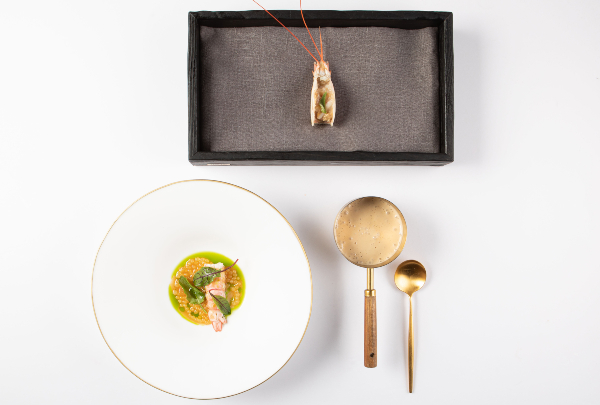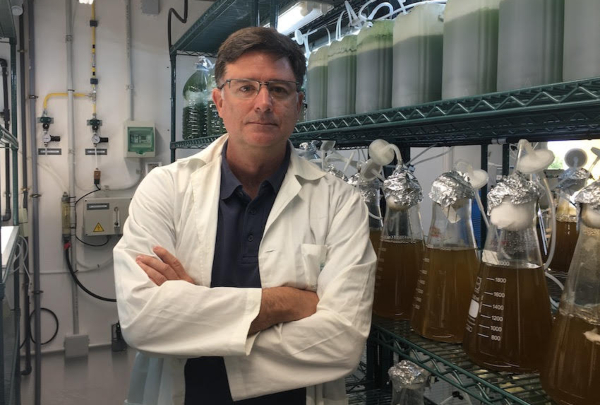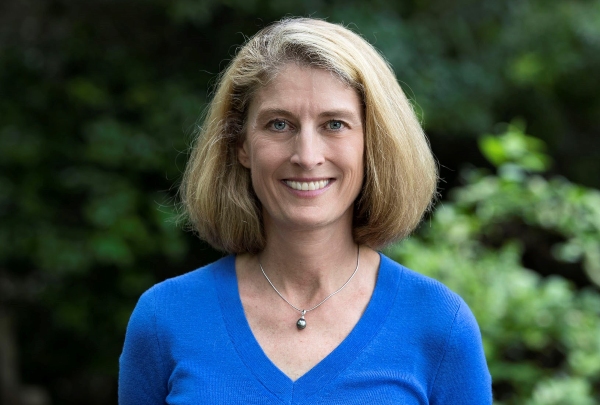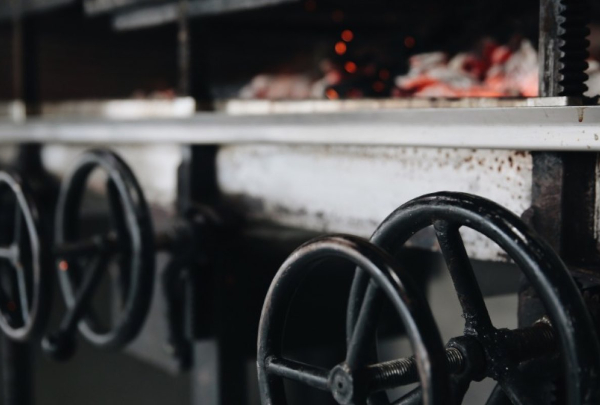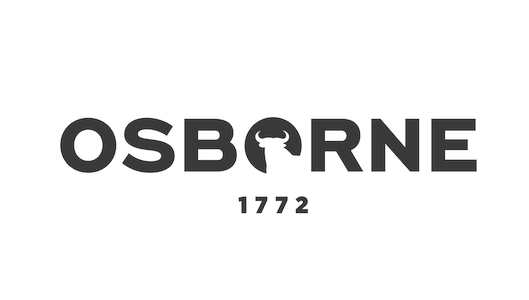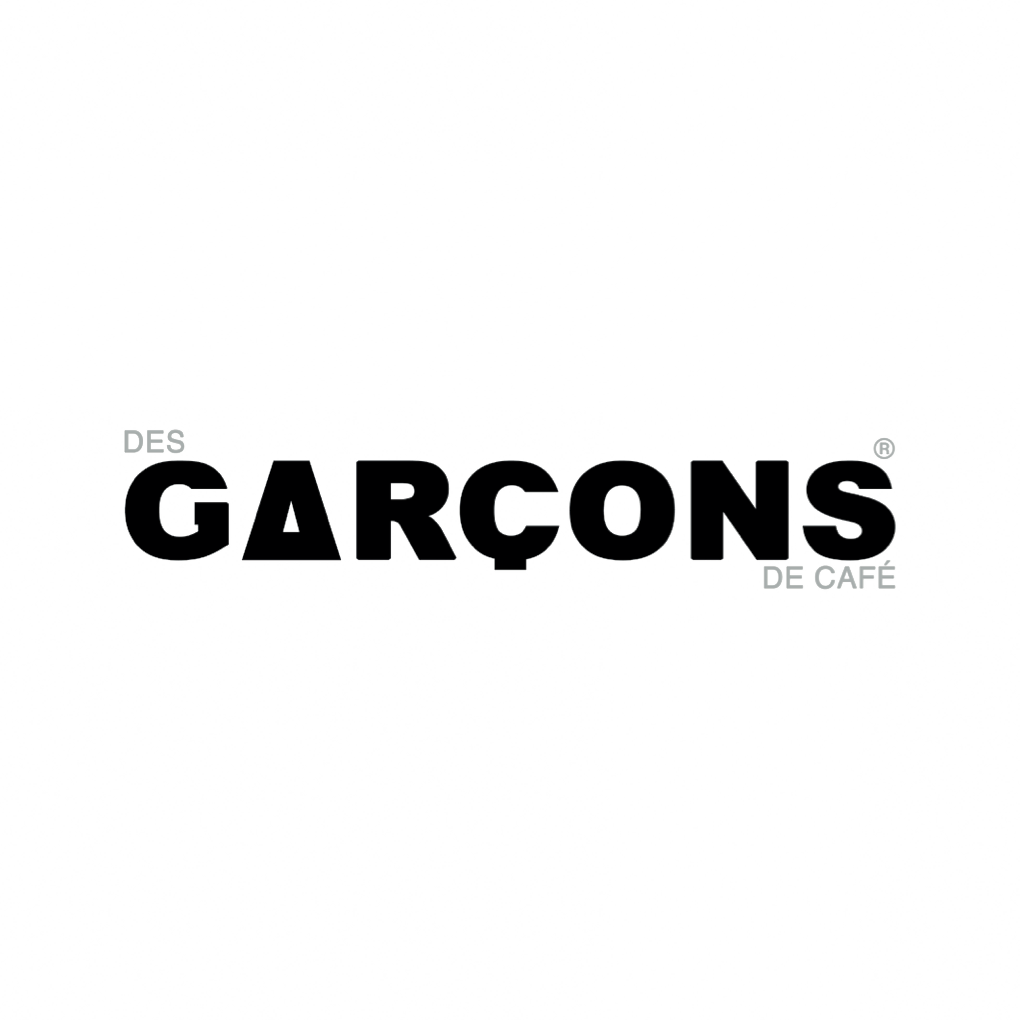News
Meeting of the Seas calls for the cultivation and consumption of algae as a lung of the planet
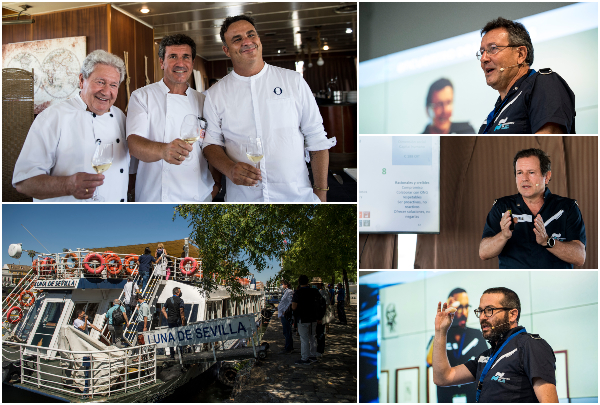
The 3rd Meeting of the Seas kicks off in Sevilla with a number of talks on a boat plying the Guadalquivir.
Maritime reforestation and its benefits are the main theme of the 3rd Meeting of the Seas which kicked off today in Sevilla. The chairman of Vocento’s Gastronomy division, Benjamín Lana, and the Andalusian Government’s Deputy Secretary of Agriculture, Livestock, Fishing and Sustainable Development, Ana Corredera, were tasked with inaugurating this congress which began in the capital of Andalusia and continued on a cruise along the Guadalquivir River. Both on the boat and on dry land, the event focused on the importance of the cultivation and consumption of algae, and also fish and sea plants as the present and future foodstuffs of human beings.
This was ratified by the experts Carlos Duarte, Juan Luis Gómez Pinchetti and Javier Garat, alongside chef Ángel León, on the first day of a congress “striving to bring a number of world sea players together to come up with a joint solution for the future of the planet. Whatever happens to the sea will happen to us as a species”, warned Benjamín Lana. Thus began the 3rd Meeting of the Seas.
Algae, “almost too good to be true”
The first working session was led by the new scientific director of the congress, Carlos Duarte. The Professor of Marine Sciences at Saudi Arabia’s King Abdullah University began by outlining the “major” benefits of the cultivation of algae, in terms of economics, the environment and social development. “There are so many benefits in the cultivation of algae that it’s almost, almost too good to be true”. With a global count nowadays of 7.5 million km2 of maritime forests (the equivalent of Amazonia), these underwater green reserves provide us with “the most intense oxygen production and carbon sequestration levels on the planet, an oasis against climate change”.
The future, says the scientist, entails increasing this surface area by creating algae farms, which would “give the land a break because they would prevent freshwater extraction”. This is why Duarte says that “eating seaweed isn’t an option – it’s a must for a sustainable global society”. An algae-related future has also been glimpsed by the Director of the Spanish Algae Bank and European algae expert Juan Luis Gómez Pinchetti, who pointed to the future creation of large-scale ocean breeding farms which would also act as huge carbon sinks. “It’s not a dream any more. The cultivation of algae functions like a lung of the planet”, he claimed.
Pinchetti pointed out Spain’s leadership of algae production, but also warned of the work still to be done to improve technology and make it more affordable and sustainable. “The microalgae issue is very much associated with the development of technology. Technology is needed to create and make progress with cultivation, but the technology uses fossil fuels. So we still have a lot of work to do to improve production technology, to make it both more affordable and sustainable”.
With the Professor of Marine Sciences at King Abdullah University, Susana Agustí, talking about the quality of the ocean’s microalgae, and a tasting session of Galician and Andalusian algae – by Antonio Muiños (Porto Muiños, Cerceda, A Coruña) and Consuelo Guerra (Suralgas, Cádiz), respectively – the audience had their first immersion in algae at this Meeting of the Seas.
Circular economy and maritime sustainability. Key concepts of the congress which converge with the Iberostar Group’s goals. The hotel business, which has joined the Meeting of the Seas as a sustainable partner, showcased its “Wave of Change” movement, which seeks “to inspire a new kind of responsible tourism to protect the environment, and most particularly our oceans”, explained the company’s Global Head of Engagement & Diversity, Soraya Romero, during one of the morning’s talks.
Fisheries, represented by the General Secretary of the Spanish Fishing Confederation, also voiced their support for sustainability, “albeit with respect for our sector”. Javier Garat spoke in favour of sustainable fishing, quotas and the use of cutting-edge technology to bring about “more sustainable and discriminatory” fishing and fight overexploitation of the sea (“which is not actually overexploited, since according to the FAO 65% of seas are being operated properly”), but with respect for a sector that is vital to the development of human beings, “because without fish human beings would not be able to feed themselves properly”.
A sustainable future, this time related to aquaculture, was also touched on by Paloma Carballo Tejero, Head of the General Fisheries Secretariat’s Aquaculture Area. According to her, “Spain is Europe’s largest aquaculture producer, with more than 300,000 tonnes. This is good, and we must continue along this line as a future source of food”. Italian chef Giuseppe Iannotti (Krèsios*, Telese Terme, Italy) also presented his 8pus fish delivery service, where he makes use of the entire fish, and brings it to consumers with a certain amount of pedagogy.
Ángel León presents rice that can be cooked on the moon ...
The chef at Aponiente (El Puerto de Santa María), Ángel León, is making progress in his bid to create a menu with no fish, only sea protein. By way of an example, on Monday he presented rice with water, microalgae and collagen. “The idea was to make a paella with no sauté, no garlic and no paprika; a paella where the sea would boil and reduce; the kind of rice that could be made on the moon”, he said.
The new item stems from work on fish tails carried out by the restaurant’s research team, “from which we extracted a rather interesting collagen by boiling a kilo of scales in a pressure cooker. That gave us the idea”. Then “we made a stock of crab with microalgae, and added the collagen and the rice to produce a deep rice, where the collagen goes crunchy and tastes of squid”. León’s dream continues its trajectory.
León homed in on the Meeting of the Seas to provide an update on his project with marine eelgrass, “a chance to create a crop that can produce 2 or 3 tonnes of grain per hectare in sea water”, he explained. “Even being able to sow grain in salt water is a genuine revolution”, said the chef. The project is moving forward with the assistance of scientists at the IFAPA institute and the University of Cantabria.
Cooking finale on the River Guadalquivir
One of the highlights of the congress was the meal served on board by three highly acclaimed Cádiz chefs. Ángel León (Aponiente, El Puerto de Santa María), Fernando Hermoso (Casa Bigote, Sanlúcar de Barrameda) and Javier Córdoba (El Faro Cátering, El Puerto de Santa María) used the boat’s galley to serve up delicious Sanlúcar prawns and shrimp tortillas in a demonstration of the artistic cooking of fish in the south of the peninsular.
After this interlude, another chef, João Rodrigues (Feitoria*, Lisbon), along with Pedro Bastos, from Nutrifresco, also produced some surprises – in this case, with only audio and images – of his Matéria project in defence of Portuguese sea produce.
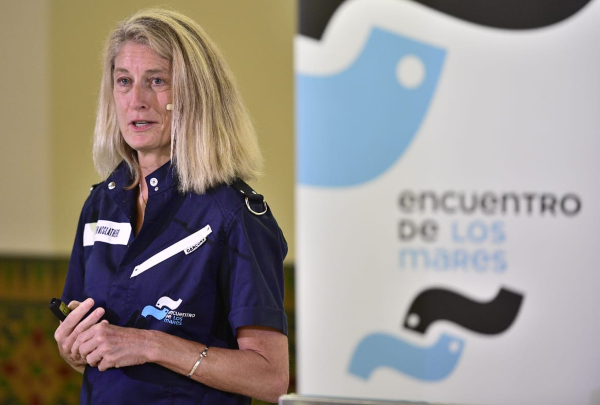
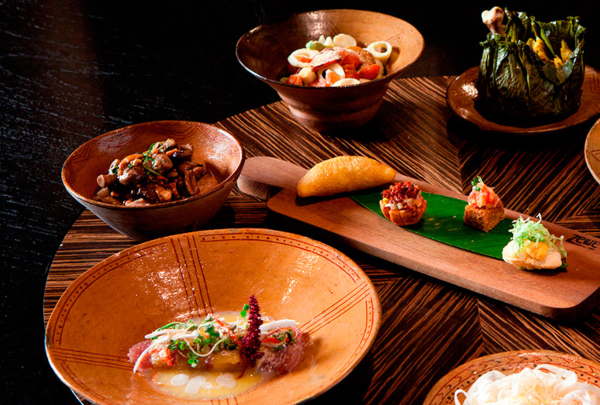
 600x405 (1).jpg)
.jpg)
